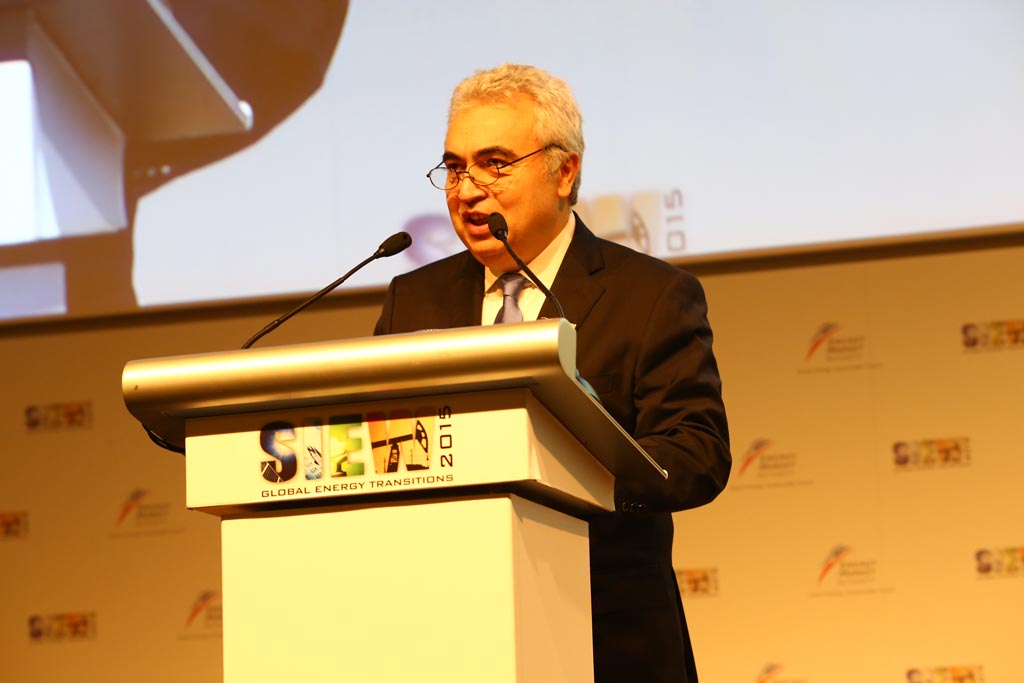
Dr Faith Birol, Executive Director of the IEA, delivering the keynote address
By Violet Chen
The fall in energy prices has been a welcome boost to consumers but should not disguise the difficult road ahead for supply and energy security as upstream investment shrinks, Dr. Fatih Birol, executive director of the International Energy Agency, said in his keynote address on Monday at Singapore International Energy Week 2015.
“Our energy security should not be indexed to oil prices,” Birol said. “It is a poor way of assessing the energy market.”
Other than the impact on future oil and natural gas production, issues to consider in managing the world’s energy transition include renewables and climate change, he said.
The fall in oil and gas prices already has had a significant impact on upstream investment, which is expected to drop by 20% this year from 2014, Birol said. In dollar terms, it will be the largest reduction in history, he added, with the investment cuts mainly coming from the United States, Canada and Brazil.
The fall in oil prices presents “serious challenges” to meeting future energy needs, Birol said. In the liquefied natural gas space, it will be difficult for any projects not yet under construction to be on the market by 2020, he added.
Energy security cannot be overlooked in the current low price environment and the impact on upstream investment presents risks around the adequacy of future supply, Birol said.
One positive development he noted was that concerns about energy security and sustainability will underpin growth in renewables. From 2014 to 2020, emerging economies such as China, India and Brazil will account for two-thirds of that growth, his presentation showed.
“Renewables are a mainstream fuel,” Birol said, adding that government support for clean energy projects remains crucial nonetheless.
Birol highlighted the importance of building momentum to achieve a successful climate agreement at the 2015 Paris Climate Conference, also known as COP21. Given that energy production and consumption account for around two-thirds of global greenhouse gas emissions, he said, action in the energy sector will be crucial to addressing the climate change challenge.To view Birol’s slide presentation, click here.
About Singapore International Energy Week (SIEW)
In its 8th edition, Singapore International Energy Week is the premier platform in Asia for energy insights, partnerships and dialogue, bringing together the world’s leading conferences, exhibitions and roundtables in one week and one location. SIEW enriches the global energy conversation by convening political, business, academic and energy industry thought-leaders to define and advance the world’s energy challenges, solutions and actions across the spectrum of oil and gas, clean and renewable energy, and energy infrastructure financing.
Please visit www.siew.gov.sg for more information.
About the Energy Market Authority
The Energy Market Authority (EMA) is a statutory board under Singapore’s Ministry of Trade and Industry. Our main goals are to ensure a reliable and secure energy supply, promote effective competition in the energy market and develop a dynamic energy sector in Singapore. Through our work, we seek to forge a progressive energy landscape for sustained growth.
Please visit www.ema.gov.sg for more information.